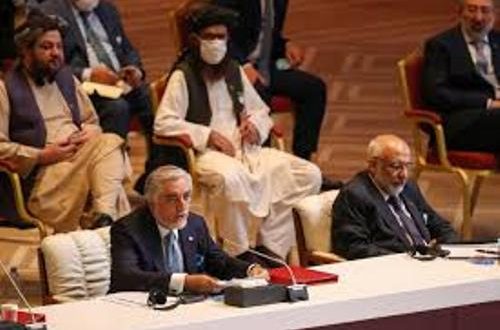The intra-Afghan talks is a fate-deciding phase in the Afghan peace process and thus wouldn’t be an easy and simple undertaking. Following Saturday’s opening ceremony, initial information suggests that as a first step, the negotiating sides are supposed to firm the agenda of dialogue, something that entails convening a meeting of a joint Govt.-Taliban committee (most probably on Monday). Being on the threshold of breaking ground in terms of peace, the ongoing peace talks will undoubtedly be contentious. As rightly expressed by the High Council for National Reconciliation (HCNR)’s Chairman Abdullah Abdullah at a press conference in Doha, the negotiations would be lengthy. It’s true because unraveling the decades-long hostilities isn’t a matter of days. It would take time to solve problems but the negotiating sides should realize that onus is upon them to end the war now. This is while the international community, especially the US, time and again implicitly or otherwise makes it known that they are pursuing a disengagement policy in Afghanistan. US point-man for Afghanistan reconciliation, Zalmay Khalilzad, in a recent interview rejected the perceptions of some Afghans – especially that of 1st VP Amrullah Saleh’s – that the US will remain in the country due to its geopolitical interests. He alleged that some in the Afghan government machinery preferred the status quo and didn’t genuinely believe in peace talks. These remarks coupled with that of US Secretary of State Mike Pompeo who said his country didn’t seek to impose its system on others signal that the US might be considering full extrication from Afghanistan. But then again he said the scope of US future assistance to Afghanistan depended on the choices the negotiating sides made in the peace talks. Although it’s early what implicit messages these statements carry, they have made one thing clear that Afghans are now handed over the reins to steer whatever way they want. This should be taken as a good omen because it’s an opportunity for Afghans to resolve their differences without any mediation or intervention from other sides. Amid all this, it should be taken into account that the negotiating sides must be open about the content and nature of their discussions and in this way remain accountable and responsible to the Afghan masses – after all, it’s their fate they are talking about. Therefore, it’s crucial to deem that the demands of Afghan people take precedence over anything else. The decisions made shouldn’t be influenced by what the US wants so that they continue their assistance to Afghanistan in the future. Attention should be paid to what Afghans want and what could end the ongoing violence and war once and for all – something that necessitates striking compromises so the talks come to fruition.

 Afghanistan Times
Afghanistan Times



